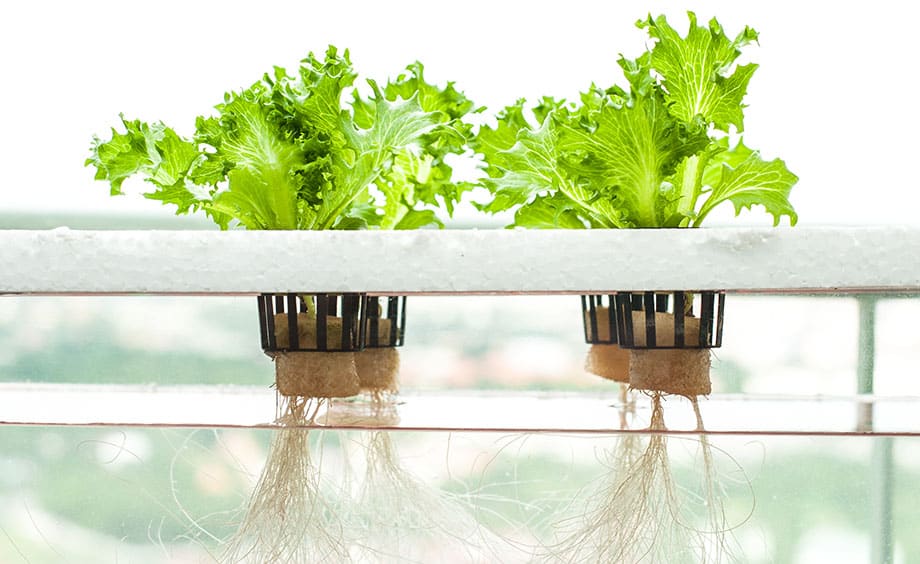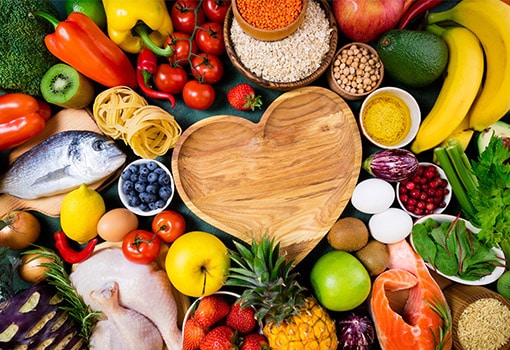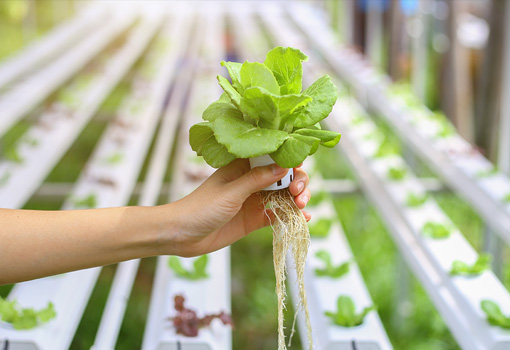Have you been hearing about hydroponics lately? Why the buzz? Simply put, with hydroponics certain plants and vegetables grow in water, not soil. But, wait…don’t you need soil and a farm or garden to grow? Not necessarily!
how does hydroponics work?
Believe it or not, plants and vegetables can grow in water – without soil. Plants need the nutrients found in soil, not the soil itself. A hydroponic system will deliver nutrient-dense water directly to the root of the plant. As a result, plants don’t waste energy seeking out nutrients in the soil. Instead, plants concentrate their energy into healthy vegetative growth.
types of hydroponic growing
In general, there are 3 approaches to hydroponic growing: “conventional” hydroponics, aeroponics, and aquaponics. With “conventional” hydroponics, plant roots sit directly in nutrient-dense water. Hydroponic farming usually occurs in a greenhouse with LED lamps.
In aeroponics, nutrient water is misted onto plant roots that are exposed and suspended in the air. Lastly, aquaponics is a system where fish and plants live symbiotically. Fish wastewater contains nutrients, which the plants absorb before releasing filtered water back into the system.
better for the environment
Hydroponic farming systems recycle the water used. This means that, on average, a hydroponic farm uses just 1/20th the amount of water that a traditional farm does. Also, hydroponic farming conserves land since it does not require soil, which also means no chemical pesticides, fertilizers or manure. That means there isn’t any toxic groundwater runoff into streams, rivers, and oceans.
better quality
Since hydroponic farming takes place in controlled greenhouse environments, plants grow year-round. And, unlike conventional farming, hydroponic farms are not vulnerable to external factors such as bad weather, soil-borne pests, or chemical contaminants. Garden growth is clean, uninterrupted and bountiful!
better community nutrition
Hydroponic farms can also improve community nutrition, particularly in urban centers. With urban hydroponic farms, you have locally grown vegetables and that means that they do not sit on a truck for 5 days from across the country! This is important for all populations, especially under-served communities that often only have access to fast food restaurants or corner bodegas.
So, as hydroponics becomes more popular, be on the lookout for a hydroponic farm near you!













